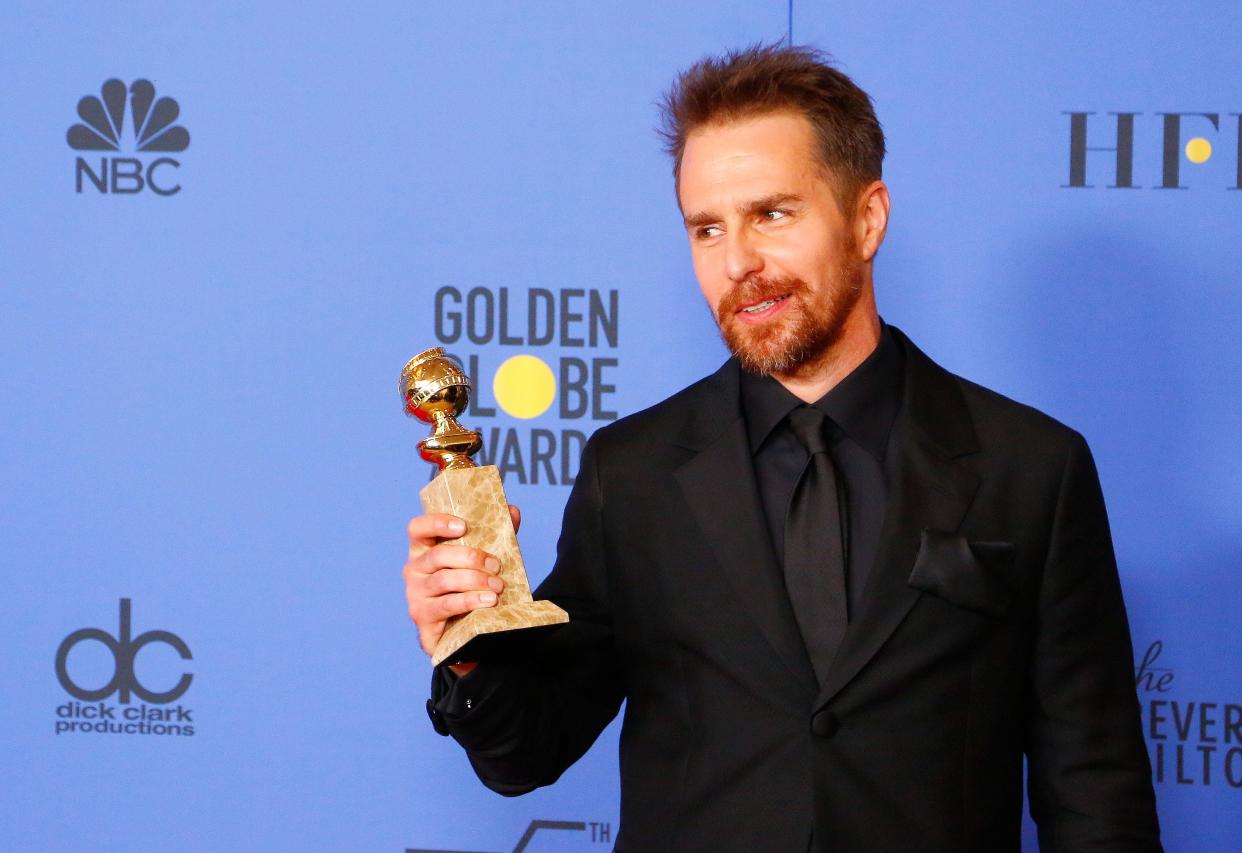The Golden Globes success of 'Three Billboards' is a problem for black representation

Three Billboards Outside Ebbing, Missouri was the biggest winner at Sunday night’s Golden Globes, picking up four out of six of the awards it was nominated for. Its success was certainly unsurprising given the critical acclaim the Martin McDonagh-written and directed film has received over the last few months, however, for many viewers and critics the film’s praise is rather problematic.
Three Billboards tells the story of a feisty and independently-minded mother who takes on the local police force following the brutal rape and murder of her teenage daughter. Frances McDormand plays this bereaved parent, Mildred Hayes, who rents out the titular three billboards and emblazons them with three messages: “Raped While Dying.” ”And Still No Arrests?” ”How Come, Chief Willoughby?”
Mildred’s fight to get justice for her daughter’s murder is superbly presented and the narrative promotes themes of female empowerment and bravery, but McDonagh, a white British-Irishman, seems to takes less care when introducing and dealing with racial elements of the story.
You see there’s another pretty central character to the story, played by Sam Rockwell, and he’s a terrible person. Officer Jason Dixon is a bigot, a racist and a sexist who has been abusing his position of power to brutally channel the anger he has with himself and the world. It’s made clear from the very beginning that this man is the poster boy for police brutality, with characters using the word “torture” to describe his treatment of the black people he has taken into custody.

McDonagh uses one of these moments to also throw in the n-word and make a cheap joke about it. “How’s it going in the n****r-torturin’ business, Dixon?” Mildred asks him to which he replies, “You can’t say ‘n****r-torturing’ no more, you gotta say, ‘peoples-of-color torturing’.” Maybe people could have accepted the humour at the expense of African Americans if the black characters – played by Amanda Warren, Darrell Britt-Gibson and Clarke Peters – were given a chance to give some back, but McDonagh never really lets them.
Instead, he turns Dixon into a hero and gives him a redemption storyline while these black characters (a co-worker of Mildred’s, a police chief, and a man who helped put up the billboard signs) are positioned as little more than victims without much opportunity to get justice for the mistreatment of black people by the dirty cop.
Many black and ethnic minority (BAME) critics and commentators have pointed out the problematic nature of the movie and have suggested its critical acclaim is indicative of the still heavily white-dominated field of film criticism.
NPR’s Gene Demby said the movie’s high score on reviews aggregator website Rotten Tomatoes is a “damning indictiment of the whiteness of the critical establishment.”
The 94% that “Three Billboards outside of Ebbings, Missouri” has on Rotten Tomatoes is a pretty damning indictment of the whiteness of the critical establishment. Jfc.
— Gene “GD” Demby (@GeeDee215) November 24, 2017
The Huffington Post’s Zeba Blay says that the film’s “success lies on a continuum of movies that go largely unchallenged by critics and audiences because they absolve certain viewers from actually having to care about the larger implications of their themes.
“Because few critics are willing or able to engage critically with the movie on race, McDonagh himself does not have to engage, does not have to wrestle with some of his failures as an artist,” she continues while Ira Madison III compares the film to Crash on The Daily Beast.
“[Three Billboards] attracts the type of crowd that likes to reward simplistic tales of racism like Crash, where white people learn how to be good to one another at the expense of black people,” he writes.
“It’s not only an attempt at emotional manipulation that runs cold, but it’s also a journey that’s play throughout…Altogether, it’s wholly offensive — so is it any wonder that it’s a frontrunner at the Golden Globes and most likely the Oscars?”
Three Billboards sweeps an award show that Get Out was shut out of. Really makes you think… pic.twitter.com/xQpC3rYWpf
— Jenn Kaytin Robinson (@JennKaytin) January 8, 2018
Their predictions were right and the movie earned a Best Supporting Actor win for Sam Rockwell’s racist cop, while a film like Get Out was overlooked in several categories during the nomination stage and then at the ceremony. Of course the white-dominated industry showed more support for the movie with the overt racist gone good than the one with Bernie Sanders voters hosting a modern day slave auction.
That’s because Jordan Peele’s critically and commercially successful social thriller holds up a mirror to the casual racism of liberal white America, so they were hardly going to thank him for it. And now, as we get closer to the Academy Awards, we’ll no doubt see this response repeated with Three Billboards getting significant Oscar nods and Get Out being overlooked as a genre film rather than the brilliantly conceived piece of art that it is.
For the sake of black representation on film let’s hope the Academy shows better judgement.
READ MORE
Frances McDormand censored during Globes speech
All the Golden Globes winners
Natalie Portman calls out sexist Globes category

 Yahoo Movies
Yahoo Movies 
